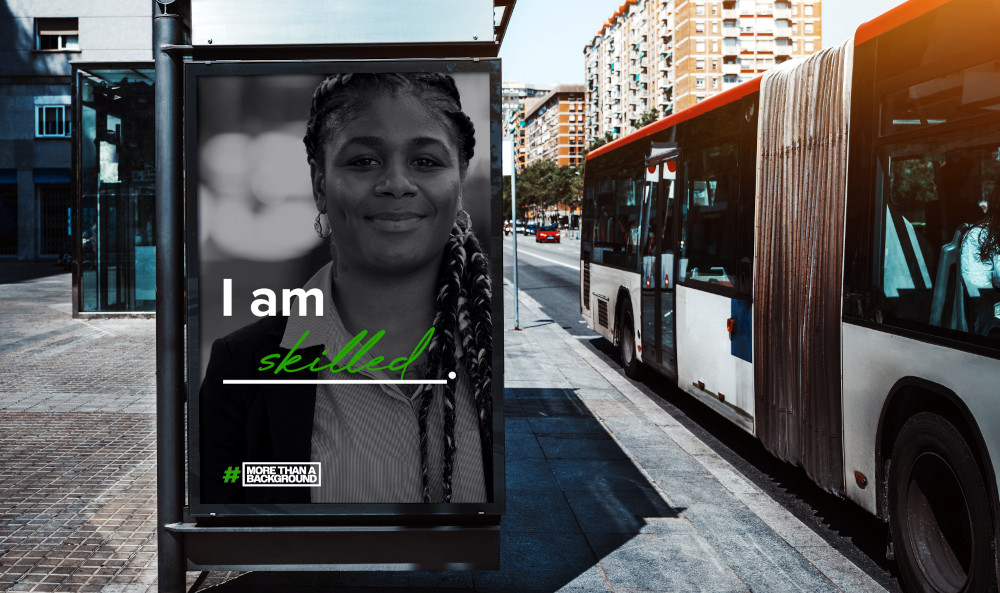Today, the Center for Employment Opportunities
(CEO), the US’s largest re-entry organization, launched “More Than a
Background” (#MoreThanABackground) — a public-awareness campaign to limit
the use of criminal background checks in the hiring process.
The campaign will use compelling imagery and personal storytelling of impacted
people — along with interactive digital assets — to create greater public
awareness of the challenges people with criminal records face when trying to
obtain employment, regardless of their qualifications. The goal of the campaign
is to shift the narrative to make people understand the inequities caused by the
overreliance on background checks in the hiring process; encourage and educate
employers on more equitable hiring practices; and seed the ground for future
reforms.
“Everyone, regardless of their past, is More Than a Background,” said Sam
Schaefer, Executive
Director of the Center for Employment Opportunities. “Every individual has
amazing attributes and identities that not only make them significant and unique
but also make them exemplary workers. They are skilled, hardworking, they are
mothers, advocates and so much more. Yet, sadly, because of the widespread
overreliance on background checks in the employment process, they are diminished
to checking a box that blocks them from accessing opportunities that they are
more than qualified for.”
In recent years, a growing wave of companies — including Ben &
Jerry’s,
Chobani, Dave’s
Killer
Bread,
Frontier
Co-op,
Greyston
Bakery
and US Rubber
Recycling
— have set the precedent that a checked box on a job application shouldn’t
automatically disqualify someone from earning a living; but this kind of
thinking must inform hiring practices on a much larger scale to challenge the
status quo.
As a national organization, CEO has seen firsthand the disparities in how
workers with criminal backgrounds are treated in the hiring process. States and
cities are increasingly addressing this problem by passing fair-chance laws that
protect justice-impacted people, but more remains to be done.
 Image credit: CEO
Image credit: CEO
“It didn’t matter that I had 22 years of restaurant management skills. When I
returned from prison in 2022, I couldn’t even get a call back … a foot in the
door. I wasn’t given the opportunity to be evaluated fairly based on my
qualifications,” said Marvin, a former CEO participant and Advocacy Leadership
Committee member. “Today, I’m proud to say, I’ve taken this experience to
become a fair-chance employer myself and am providing opportunities to others
that are returning from prison and facing the same obstacles I did.”
Nationally, 94 percent of employers run background checks to screen applicants;
and the lack of employment protections for formerly incarcerated people has
resulted in them experiencing higher unemployment than any other population. In
fact, according to a 2021
report by the Bureau of
Justice Statistics, roughly 60 percent of formerly incarcerated people were
unemployed a year after being released; and 40 percent were still unemployed
four years post-incarceration. And although more employers have expressed a
willingness to hire people with criminal records, evidence shows that having a
record reduces employer callback rates by 50
percent.
Legislation has been introduced in California that would further limit the
use of criminal background checks in the hiring process. CEO is a proud
co-sponsor of California Senate Bill 1345 — the Just Access to Jobs
Act —
which seeks to improve upon ban-the-box reforms of 2017 by further limiting the
use of background checks in the hiring process and providing more protection for
employees with criminal records who face discrimination in the workplace. The
bill comes on the heels of a Los Angeles County fair-chance
ordinance
passed in February 2024 that gives additional rights, protections and
enforcement mechanisms for people with criminal history seeking employment. It
not only applies to all private employers with five or more employees, it
applies to Los Angeles County government — the largest local employer.
A workforce that provides opportunities for all workers is a workforce that
values each person’s skills and experience, and recognizes that we are all more
than a background check.
More information and personal stories can be found at
MoreThanABackground.org.
Get the latest insights, trends, and innovations to help position yourself at the forefront of sustainable business leadership—delivered straight to your inbox.
Sustainable Brands Staff
Published Apr 1, 2024 8am EDT / 5am PDT / 1pm BST / 2pm CEST